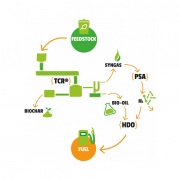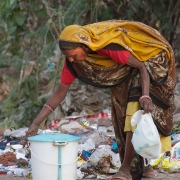Waste-to-Energy to the Service of EU Cities
An ESWET and Committee of the Regions event discussed the role of Waste-to-Energy in replying to challenges of the EU green transition by fostering the circular economy and energy security.
Policymakers and experts from across the European Union and beyond came together yesterday in Brussels, at the European Committee of the Regions, for the Conference Waste-to-Energy & the City: generating value for Communities. The hybrid event organised by ESWET – The European Suppliers of Waste-to-Energy Technology, and co-hosted by the Committee of the Regions (CoR), discussed the challenges and opportunities for the Waste-to-Energy (WtE) sector in a city landscape and gathered more than 120 attendees.
During the event, participants engaged in dynamic panel discussions learning about regional WtE practices (Kata Tüttő – Deputy Mayor of Budapest, and member of CoR, Andries Gryffroy – Member of the Flemish Parliament, and member of CoR), relevant EU policies (Eero Ailio – European Commission), stakeholder engagement and accountability (Aurélie Beauvais – Euroheat & Power, Dr Thanos Bourtsalas – Columbia University, Ana Šerdoner – Bellona), innovative WtE technologies (Dr Ella Stengler – CEWEP, Vanessa Fakra – HZI & ESWET) and successful initiatives from across the EU (Alexander Kirchner – Wien Energie, Inger Anette Søndergaard, Ramboll Engineering), promoting both circular economy and energy security.
The discussions emphasised the importance of collaboration and partnerships between stakeholders, and the need to take a long-term perspective when it comes to waste management and WtE, and highlighted the importance of balancing environmental sustainability, economic development, and social well-being.
“We are facing complex and interconnected challenges when it comes to waste management and energy security” – said Dr Siegfried Scholz, President of ESWET in his opening remarks – “and so we need to work together to find sustainable and equitable solutions.”
Moving forward, ESWET and its members will work to disseminate the key messages and recommendations from the event to policymakers, stakeholders, and the wider public. The organisation believes that the conversations and collaborations initiated at this event will contribute to a more sustainable, circular, and resilient Europe, and they are committed to continuing this important work in the months and years to come.
Source: ESWET (Brussels, May 17, 2023)









